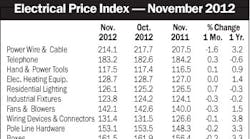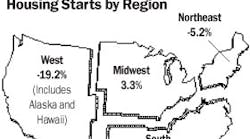In a move that would give its utility business a widespread presence in the western United States, Hughes Supply Inc. has agreed to acquire two utility distributors for $123.5 million in cash.
Tom Morgan, president and CEO of Hughes Supply, Orlando, said the acquisitions of Southwest Power, Santa Fe Springs, Calif., and Western States Electric, Portland, Ore., would strategically expand the company’s utilities business to the western and southwestern regions of the United States and Canada. This is the first time that Hughes’ electric utility business would have a presence in Arizona, California and Washington state, said a company spokesperson.
Hughes said the two companies share common ownership. Together, they operate 26 branches in 11 U.S. states and British Columbia, and generated about $244 million of revenue in 2003. They provide more than 2,100 customers with a complete line of utility supplies and supply chain management services.
Hughes Supply has been one of the biggest acquirers in the industry in recent years, and has made strides to build its business outside of its base in the southeastern United States. Earlier this year, it acquired Standard Wholesale Supply Co., a Las Vegas-based distributor of waterworks, electrical and plumbing products. The company also expanded its maintenance and repair operations (MRO) business with its 2003 acquisition of Century Maintenance Supply, Stafford, Texas.
In 2002, Hughes made a huge acquisition in the utility market when it bought Utiliserve Holdings Inc., Corinth, Texas, which at that time had sales of $230 million through a network of U.S. utility distributors it had acquired.
Net sales in Hughes’ utility business in fiscal year 2004 totaled $363.8 million. Utility sales account for about 11 percent of the company’s $3.2 billion in 2004 total sales.

